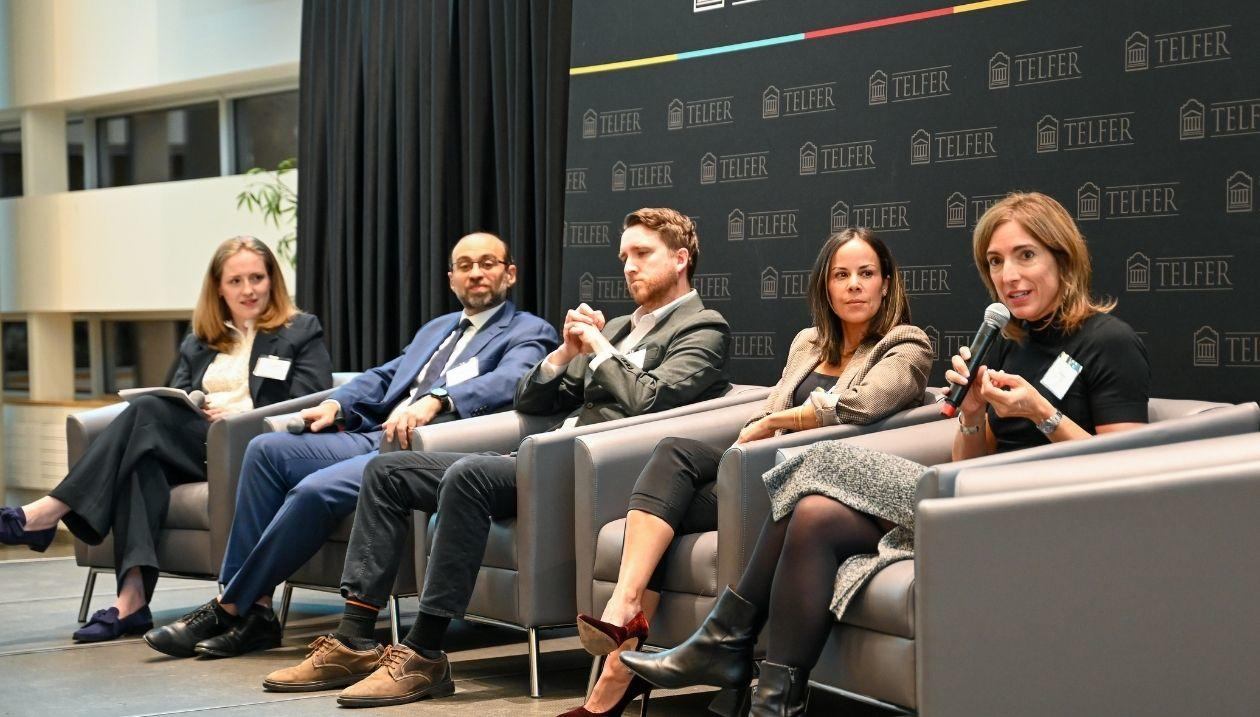In the wake of the COVID-19 pandemic, inequalities have never been clearer. While gender disparities have evolved since the initial lockdowns, when schools moved to distance learning and many small businesses shuttered operations, women-owned businesses continue to feel the brunt of the pandemic due to economic turmoil and recurring isolation measures.
Telfer professors Barbara Orser and Catherine Elliott have received a Social Sciences and Humanities Research Council Insight Grant to refine measures to evaluate and inform entrepreneurship education and training courses and programs. They will use what they call a “gender-smart entrepreneurship education and training plus” framework. Their goal is to enhance course and program relevance, while reducing racial and occupational stereotypes and implicit biases in training.
Project title: Gender-smart Entrepreneurship Education & Training Plus
Barriers to inclusion
In previous research, Orser showed that women who are newcomers, racialized or from other designated groups face more barriers in accessing small business relief funds and support services compared to other small business owners.
Orser, the new study’s principal investigator, says, “this research will advance best-in-class tools to assess equity, diversity and inclusion within entrepreneurship education and training programs. Working with leading academics, economic development agencies and organizations that support small businesses and new ventures around the world, it will drive innovation in entrepreneurship program content and instructional practices.”
A “she-cession”
As the fall federal speech from the throne recognized, the economic crisis can be called a “she-cession.” For Elliott, “insights from our study will prompt difficult conversations about diversity and inclusion among entrepreneurship education and training program stakeholders. (The study) will help develop a shared vocabulary and perspective around inclusion.”
Orser and Elliott’s study is timely. One positive news item in the 2021 federal budget was the government’s long-awaited Canada-wide early learning and childcare plan. As well, the budget includes support for digital skills training, procurement of goods and services from equity seeking groups and reinvestment in the federal Women Entrepreneurship Strategy. The strategy includes strengthening small business support organizations. Inclusion is thus a central component of Canada’s recovery plan.
Research benefits
The two researchers will use web-based tools to identify barriers and benchmark progress in strengthening inclusive small business services. Their findings will be used by instructors and trainers to assess and inform entrepreneurship courses and programs. Program managers can use them to determine whether courses and other advisory services are inclusive, and to construct action plans to address gaps. Learn more about the program tools and resources on the Inclusive Entrepreneurship Education and Training project web page.
As Elliott says, the study “will lead to more diversity in entrepreneurship education and training programs and services, businesses, leaders and society.”

Barbara Orser is a Full Professor and the Deloitte Professor in the Management of Growth Enterprises. Her research, teaching and advocacy focus on entrepreneurship and women’s economic empowerment. Read more about her work.

Catherine Elliott is as an Assistant Professor of organizational behaviour and human resources. Her research interests are focused on improving organizational performance and enterprise growth in human performance, performance management in public sector organizations, and management education. Read more about her work.











